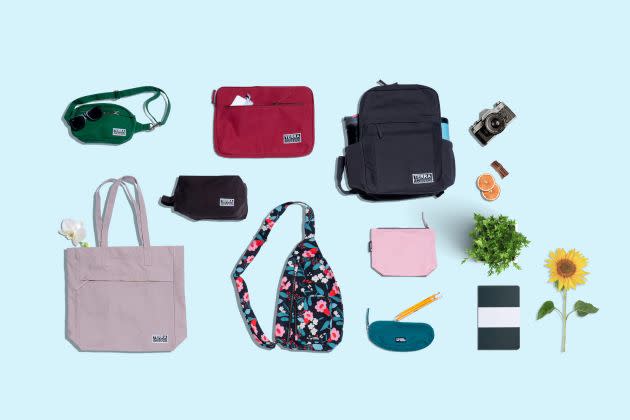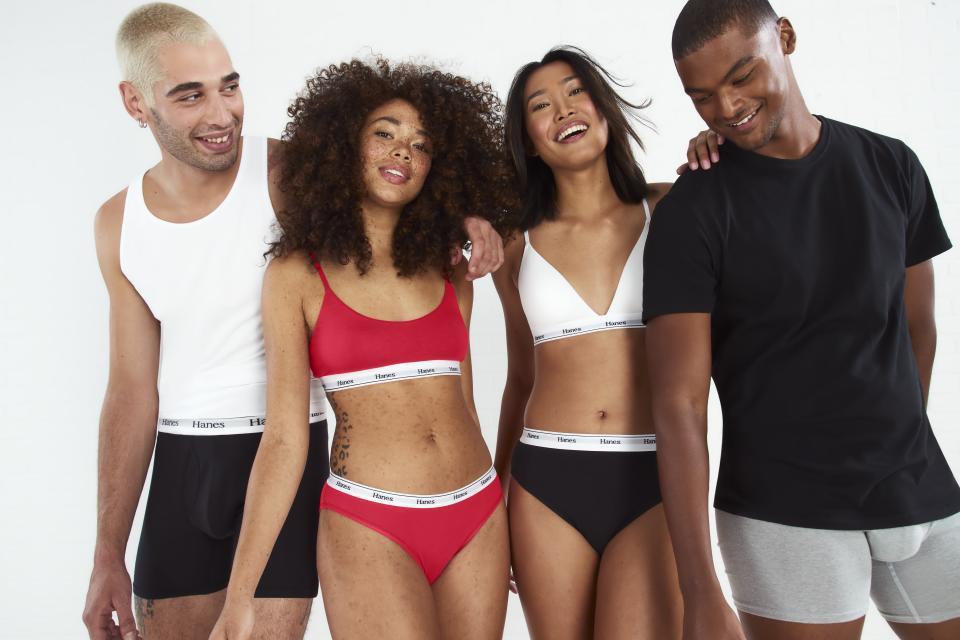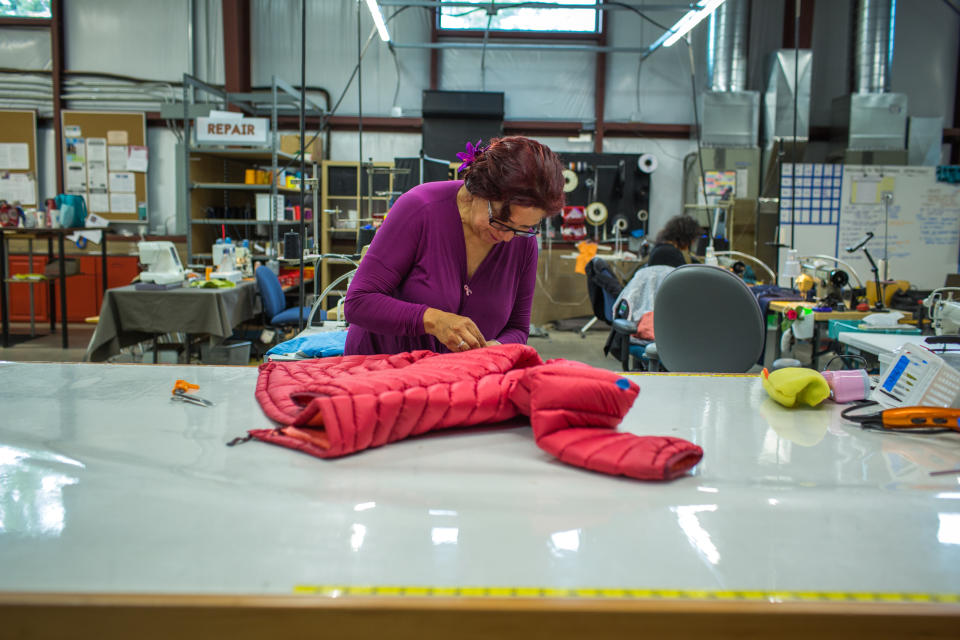Got Certifications? Brands Weigh Pros and Cons

To certify or not to certify, that is the question.
The consensus is, as with most sustainability programs, it depends. Given the high costs of getting and staying certified, and the questionable impact of some programs amid heightened greenwashing, companies are rightfully selective. Here, brands such as REI, HanesBrands, Terra Thread and designers like Nia Thomas weigh in on what’s worth the impact for them and what’s more noise.
More from WWD

Company: HanesBrands
Founded: 1901
Category: Intimates
Key Targets: Reduce Scope 1 and 2 emissions by 50 percent by 2030. Another key goal is to source 100 percent “sustainable cotton” (including certified organic cotton) by 2025, of which 61 percent is credentialed today.
“While certifications are important, our sustainability plan goes much deeper. Our major differentiator from others in the industry is that we make nearly 70 percent of our clothing in facilities we either own or operate, giving us the ability to have significant and direct oversight over our company’s sustainability practices, not only within our brands’ operations, but across our supply chain. As a vertically integrated company in the apparel industry, we’re pretty rare,” said Chris Fox, chief sustainability officer, HanesBrands Inc.
Materials:
Global Organic Textile Standard (or GOTS-certified goods, must contain a minimum of 70 percent certified organic fibers. A product with the label “organic” must contain a minimum of 95 percent certified organic fibers.)
Recycled Content Standard (or RCS, is a chain of custody standard to track recycled raw materials through the supply chain that ensures at least 20 percent recycled content.)
Chemicals:
The American Apparel and Footwear Association Restricted Substances List (Its latest version, Version 23 RSL, covers 12 categories with more than 250 chemicals.)
Zero Discharge of Hazardous Chemicals (or ZDHC, is a chemical management certification system spanning 11 priority chemical groups, among them “forever chemicals” such as PFOA and PFOS categories.)
Labor:
Fair Labor Accreditation (is used by more than 30 apparel brands to report on social compliance programs, among them systems, procedures, strategies and tools to address and improve working conditions.)
Trade Memberships:
AAFA
Sustainable Apparel Coalition
Fair Labor Association

Company: REI
Founded: 1938
Category: Outdoor
Key Targets: As part of its newly announced “Product Impact Standards,” REI will be engaging partners to ensure brands representing at least 55 percent of REI’s annual sales volume also set a science-based emissions reduction target by 2025.
“Our standards are intended to provide a helpful framework for our brand partners. For smaller brands that may not have a dedicated sustainability team, they provide guidance and highlight important foundational practices that every brand should implement. For larger and more sophisticated brands, the ‘preferred attributes’ provide brands an opportunity to make their products according to leading best practices and to highlight that to consumers. Our aim is to help make these practices the status quo across the outdoor industry and beyond and to continue to raise the bar by implementing leading practices as they emerge,” said Greg Gausewitz, senior manager, product sustainability at REI.
Materials:
Forest Stewardship Council (or FSC certification, is a standard on eco-friendly packaging and material sourcing that prohibits the making of paper, pulp or wood products from endangered forests.)
U.S. Department of Agriculture Certified Organic Cotton (requires textiles to be third-party certified according to National Organic Program standards throughout the entire production process. Manufacturers must also specify the percentage of organic material.)
Responsible Down, Wool & Mohair (Overseen by Textile Exchange, the standards requires all sites, from farmers to the seller in the final business-to-business transaction, to be certified.)
Products:
Fair Trade (means a product has been certified to comply with Fair Trade principles, or a 200-plus point checklist of Fair Trade criteria including safe working conditions.)
Bluesign (specifies consumer safety limits for chemical substances in apparel and complete disclosure of raw materials.)
Responsible Down, Wool & Mohair
FSC
Chemicals:
Bluesign
Leather Working Group Certification (where leather is sourced from gold- and silver-rated facilities that use cleaner tanning methods, energy use, waste and chemical management, and the like.)
Labor:
Fair Trade (including Fairtrade International, Fair Trade Certified and Fair for Life audits ensure producers receive prices that cover their average costs of production. It also prohibits child and forced labor at the farm level and ensures workers receive legal wages and benefits.)
Climate Neutral Certified (entails an independent audit for calculating and offsetting a company’s carbon footprint, including various social good projects.)
Trade Memberships:
SAC

Company: Nia Thomas
Founded: 2018
Category: Designer ready-to-wear
“I believe there is no one single way to be 100 percent sustainable. But there are hundreds of ways to make a difference on every level. As a one-woman show running an entire brand, I see and act every day on ways to make the brand more eco-conscious. It is hard using compostable shipping mailers and recycled textiles that are more expensive to the plastic-based alternatives, but I wouldn’t be able to sleep at night knowing I am contributing to one of the world’s most polluting industries. It is a challenge as the brand scales to comply with only ethical standards but it is one I am dedicated to and want to be held responsible for,” said Nia Thomas, the brand’s eponymous designer. “It was necessary for us to comply with these certifications so we could start taking the necessary steps to having a greener supply chain that supports garment workers and our planet.”
Materials:
Oeko-Tex Standard 100 (ensures every component of the textile, including thread, button and accessories, has been tested for harmful substances beyond national and international requirements.)
Products:
N/A
Chemicals:
Made In Green (is overseen by Oeko-Tex and ensures that the article is tested for harmful substances abiding by either the Oeko-Tex’s Leather Standard or Standard 100 and “Step” for facilities.)
Labor:
N/A (though Nia Thomas provides livable wages at $15 an hour and up in New York’s Garment District with goods being hand-knit.)
Trade Memberships: N/A

Company: Terra Thread
Founded: 2017
Category: Accessories
Key Targets: Terra Thread products are made from organic cotton grown by smallholder tribal farmers in Odisha, India. Currently all of Terra Thread’s products are certified by three major third-party certifications.
“There is a lot of greenwashing, and there are companies who are doing self-proclamation of their products. One of the best ways to ensure that we address and incorporate social, environmental and animal welfare in the supply chain is through renowned and stringent third-party certifying bodies such as USDA, GOTS, Flocert and Fair Trade’s USA factory certification. We wanted to be responsible for our supply chain, and these standards guarantee the criteria mentioned above are met through their on-site audits,” said Vizan Giri, cofounder of Terra Thread.
Materials:
GOTS
USDA National Organic Program (NOP) Standards
Products:
GOTS
Fairtrade Certified
Fair Trade Certified factory (overseen by Fair Trade USA).
Chemicals:
USDA NOP (prohibits use of toxic fertilizers and pesticides as well as genetically modified organisms, or GMO, seeds.)
GOTS (prohibits the use of toxic chemicals during post-harvest process.)
Labor:
Fairtrade Certified
Regenerative Organic Certified (or ROC, is a standard that Patagonia also uses for organic agriculture methods.)
Trade Affiliations:
B Corp (Terra Thread’s parent company, Gallant International, is a B Corporation which means it is vetted by a 300-question environmental, social and corporate governance survey.)
Best of WWD

